Comparing The Westworld Movie To The HBO Show
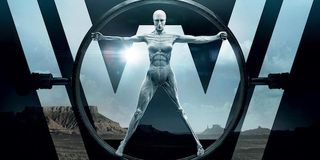
It’s tricky business to even approach the idea of adapting a film into a TV show. Just ask the folks who thought Casablanca would be a wonderful weekly series back in the 1980s. However, when the source material is ripe for expansion, the right approach can open doors that were never dreamed of when the film version came into existence.
This is exactly what happened when HBO ventured into turning legendary author/filmmaker Michael Crichton’s film Westworld into an episodic television series. With series creators/showrunners Lisa Joy and Jonathan Nolan at the helm, the two genius minds behind this revival of sorts have taken the core idea of that original film and morphed it into an interconnected web of philosophy, technological intrigue and good old fashioned sci-fi madness.
So how does that original vision for Westworld stack up against the sleek, modern reimagining? Well, that’s something we’re about to discuss, as we’ll look at both the film and TV series, and pull apart the differences that separate them, as well as highlight the similarities that unite them. Feel free to freeze all motor functions, and read just how Westworld plays across its various incarnations.
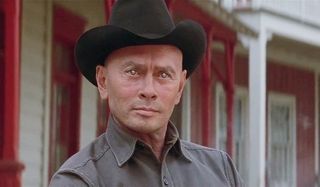
Westworld (Film)
It’s the dream that started it all. Released in 1973, Westworld followed Peter Martin and John Blaine, a pair of friends visiting the Delos-owned theme park that promised the ultimate vacation adventure.
Consisting of three themed worlds, Western World, Medieval World and Roman World, the luxury destination promises everything an adventure seeker could want. Romance, violence and merriment await the guests, with Western World having its own infamous attraction: The Gunslinger.
Of course, being a Michael Crichton creation, Westworld eventually saw the human guests and park employees under siege by the mechanized attractions, thanks to a computer virus wreaking havoc throughout all three parks.
Despite feeling very much like a product of its time, Westworld made the most of its technical limitations, and it feels like a first draft of an idea that Crichton would revisit in his future novel, Jurassic Park. A theme park where man controlled everything, sparing no expense to give the audience one hell of a thrill, Westworld would give way to a sequel film, as well as an ill-fated TV show, both of which would prove to be invaluable to the future of the franchise.
CINEMABLEND NEWSLETTER
Your Daily Blend of Entertainment News
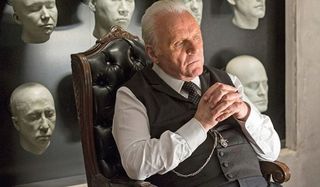
Westworld (TV Series)
After years of trying to reboot Westworld into the modern world, HBO finally succeeded with the 2016 TV series treatment of Michael Crichton’s original idea. Drafting an all-star cast, as well as the creative talents of J.J. Abrams, Lisa Joy and Jonathan Nolan, the Delos mythos was reinvented for a new generation of audience members.
In the HBO version of Westworld, the titular park is a much grander experience, with most of the same experiences of romance and violence being available to all park goers. However, the focus of the show’s narrative splits between the world of the human and the world of the robotic hosts that populate Westworld, and eventually the other parks revealed to the audience.
Over time, the line between host and human is blurred, as the clash between the corporate vision of the Delos Corporation and artistic vision of the enigmatic Dr. Ford and his park staff mask a deeper, more pressing confrontation that eventually spills into the parks, as the hosts gain sentience and start to make their own plans for how things should be run in Westworld and beyond.
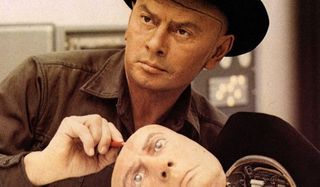
How Westworld’s Movie Compares To Its TV Series
If you took Westworld’s 1973 movie and its 2016 TV show, and put them side by side, the difference would look like night and day. Between the advances in special effects, as well as storytelling, you couldn’t be blamed to think that there’s such a wide gap between the two incarnations that you could build a pretty long bridge between the two.
However, the Westworld movie is still very much a crucial component to the eventual genesis of Westworld the TV show. It introduced the concept of a high tech theme park that allows humanity to express every impulse without guilt, as well as the idea that we’d be in trouble once the machines went off their programmed paths.
But the big difference is, of course, that a 90-minute film can only do so much with the ideas that Westworld lays down. Over the course of a TV show’s extended narrative, those concepts have been revisited in expanded detail, and the result is pretty groundbreaking.
The narrative that the series delves into, involving the ethics of humanity creating sentient life for violent delights, only to meet a violent end at the hands of those very creatures, is pushed even further in Westworld’s TV incarnation. Mixing in the open-ended storytelling of modern video games, as well as split focus between the world of humanity and the world of the park, has only taken that original film’s spirit and brought it into a more modern school of thought.
Strangely enough, Westworld the TV show has also adopted plot points from the film sequel Futureworld, as well as the short-lived TV series Beyond Westworld, both of which played around with ideas that the HBO show would eventually fold into its narrative. So while it’s easy to contrast the TV series and the original film, the lackluster follow-ups are crucial to the foundation this modern reincarnation has built its very success upon.
When comparing the past and present of a series with a rather complicated past like Westworld, most try to tell the narrative of how the past was influential, but overall forgettable when compared to where modern innovations have taken the property. But without that Westworld movie, its film sequel, or its original TV series follow-up, the ideas that the new HBO series have incorporated would be lost.
Westworld is actually an interesting case where the past incarnation is just as valid as the newer version. Ideas of the past are refreshed in the present, with a fresher take on the same story making for interesting viewing. Just like building a new park on the bones of an older version of itself, Westworld’s past is also its future. A future that’s still being written as we speak.
Westworld will return at some point in 2020 for Season 3, presumably in its usual time slot of Sundays at 9 PM ET on HBO. In the meantime, you can catch up on the first two seasons, courtesy of HBO Go or HBO Now. The Westworld movie, as well as the sequel Futureworld and the series Beyond Westworld, are available through most streaming providers.
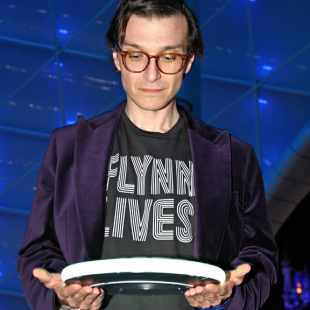
Mike Reyes is the Senior Movie Contributor at CinemaBlend, though that title’s more of a guideline really. Passionate about entertainment since grade school, the movies have always held a special place in his life, which explains his current occupation. Mike graduated from Drew University with a Bachelor’s Degree in Political Science, but swore off of running for public office a long time ago. Mike's expertise ranges from James Bond to everything Alita, making for a brilliantly eclectic resume. He fights for the user.
Most Popular





